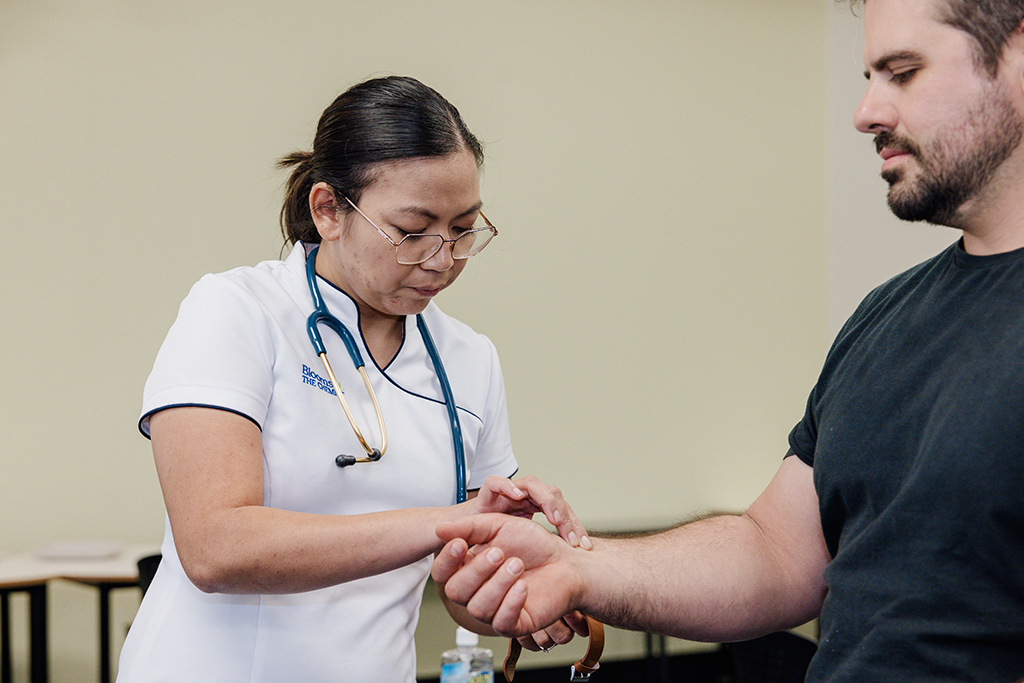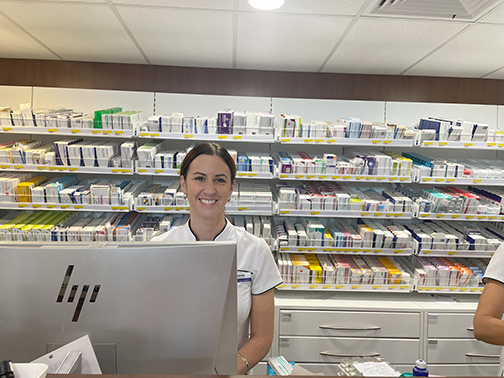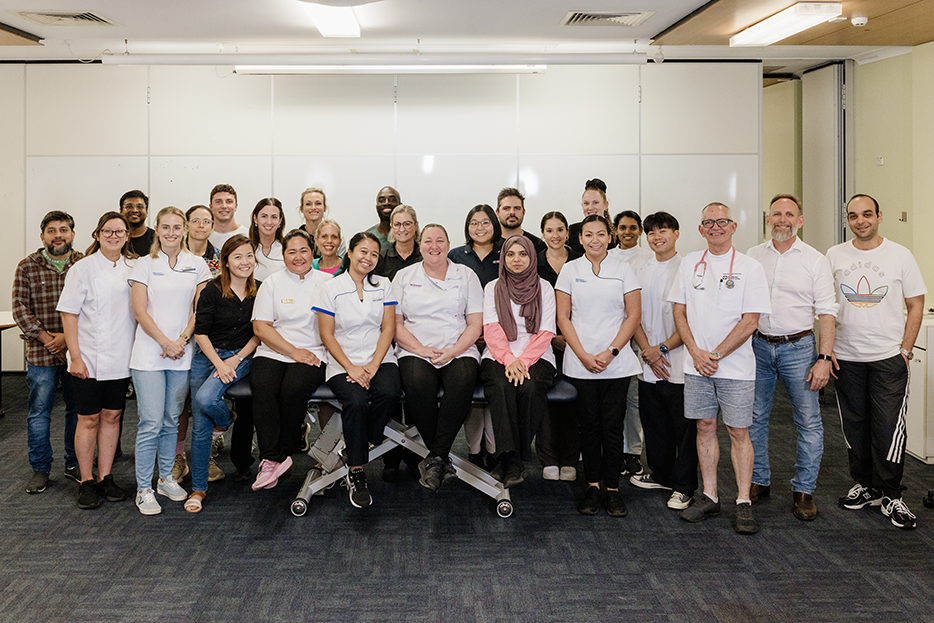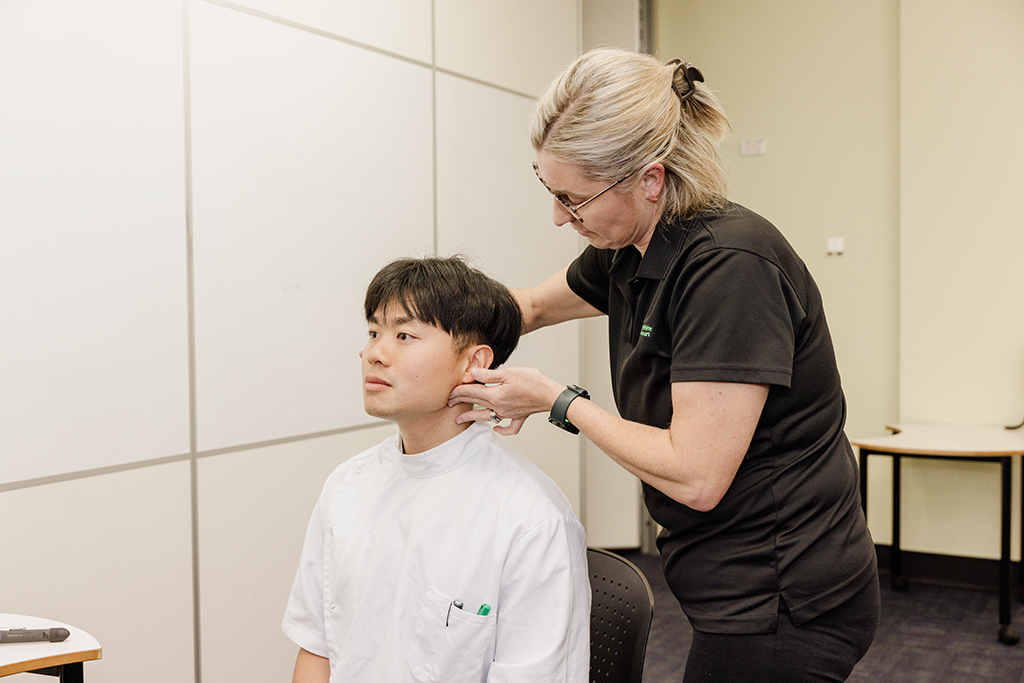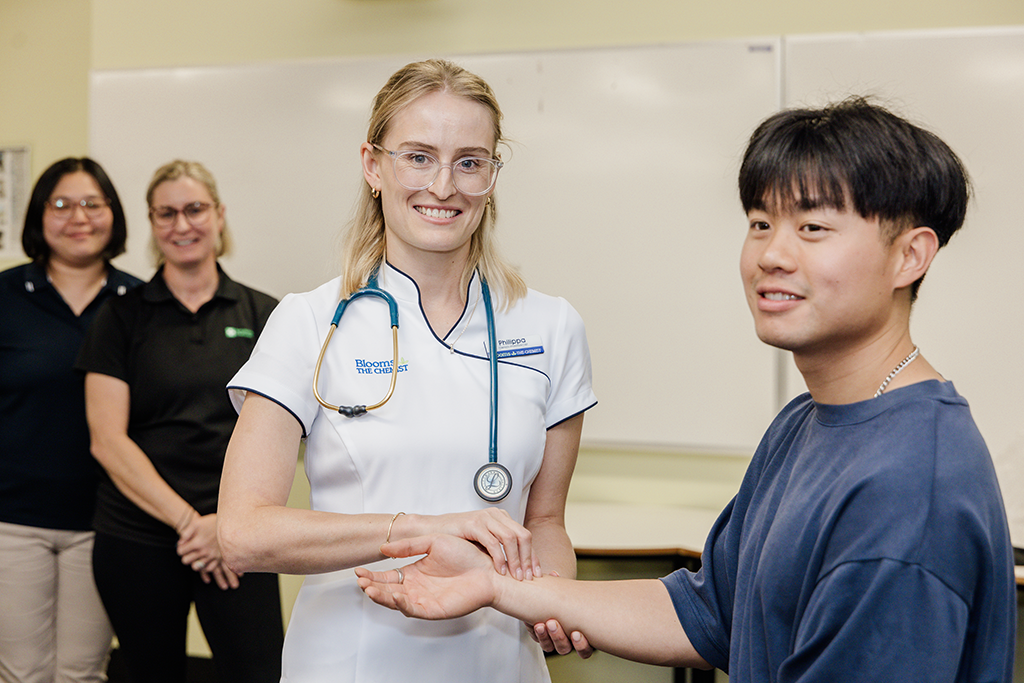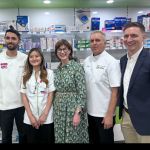She owns three pharmacies in regional areas – one in Darwin and one in Palmerston in the Northern Territory, and one in Orange in New South Wales.
Each community faces their own health challenges, but a common thread is limited access to primary care.
Ms Moses recently embraced the opportunity to become a pharmacist prescriber, thanks to new local training options. She is one of 28 pharmacists completing the Graduate Certificate of Advanced Practice and Prescribing for Pharmacists through James Cook University (JCU).
In July, JCU held its residential placement in Darwin for the first time.
Previously, students who were required to complete two in-person sessions had to travel to Brisbane for their studies.
“The extra study is a lot on top of your full-time work and running a business, so not having to travel helped,” Ms Moses said.
"I loved the chance of meeting other pharmacists in the local area – I feel like we can reach out to each other for support."
Over the week-long placement, students put theory into practise, learning how to use a stethoscope and otoscope, check blood pressure and pulse, conduct comprehensive health history consultations, and more.
Graduates are then authorised to prescribe for around 21 conditions, such as impetigo, otitis media and externa, psoriasis, dermatitis, asthma, chronic obstructive pulmonary disease, and hypertension.
Their scope also includes preventive health services, including cardiovascular risk reduction and hormonal contraception.
Keely Quinn, Pharmacy Guild of Australia’s Northern Territory branch director, said all students in the program have ties to the NT, and most received NT government subsidies for their training.
“Getting into a GP in the Northern Territory can take up to six weeks, so having our pharmacists manage some of these conditions will ensure early intervention and lead to less hospitalisations,” Ms Quinn said.
“After we had conversations with the government, it was important to make the residential as easy as possible because a week out of a pharmacy is quite a long time, and that work has to be done by a replacement pharmacist or locum.”
I loved the chance of meeting other pharmacists in the local area – I feel like we can reach out to each other for support.
Melanie Moses, prescribing pharmacist
Students finished the week energised by their new capabilities and the impact they hope to have.
“Lots of people were talking about practising on their kids, moving onto spouses, [and] extended family,” Ms Quinn said.
“As pharmacists, they don’t tend to touch people, so this is very new and sometimes a little bit confronting.
“But the realisation of what they’ll be able to… contribute to their patient’s life… that excitement was palpable in the room on the last day,” Ms Quinn said.
